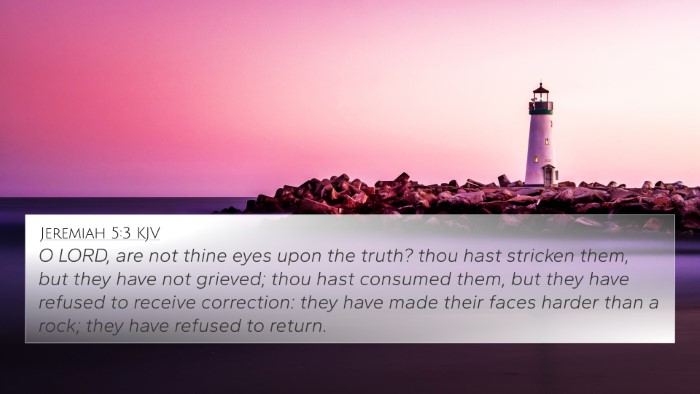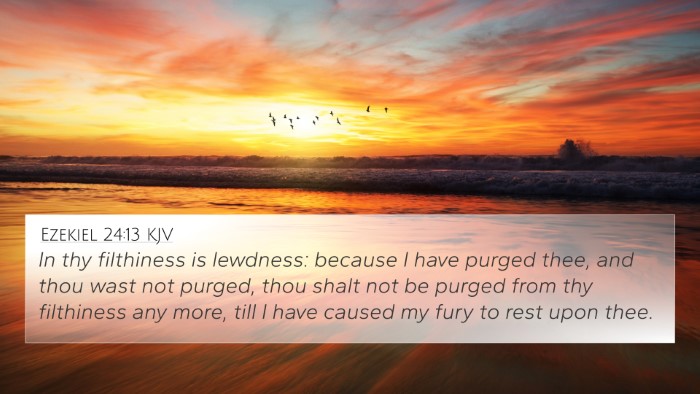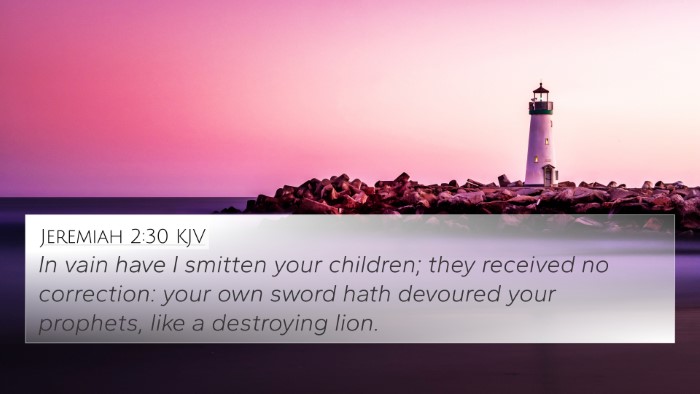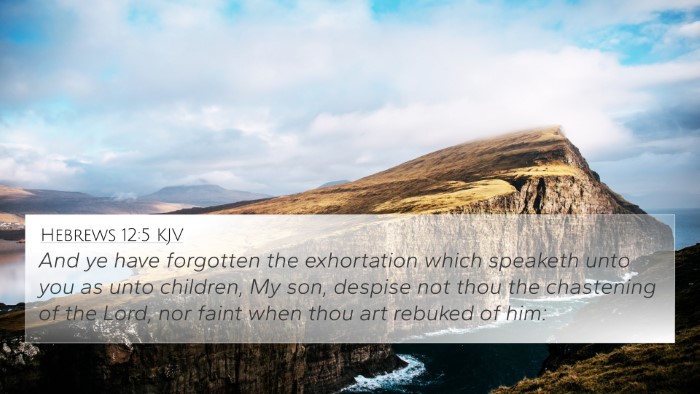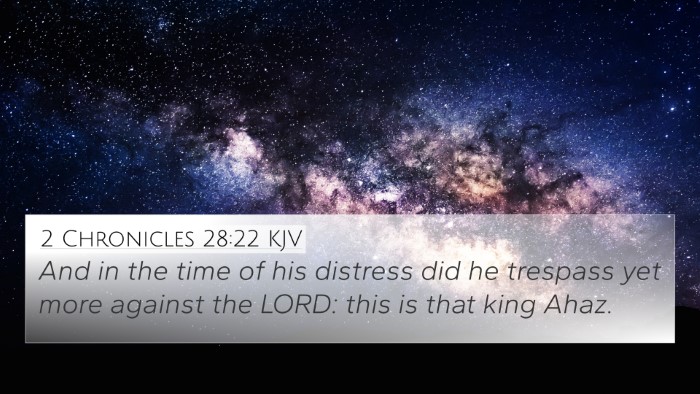Understanding Isaiah 1:5
Verse: "Why should ye be stricken any more? Ye will revolt more and more: the whole head is sick, and the whole heart faint."
Summary of Insights
This verse is a profound inquiry into the state of the people of Israel, focusing on their repeated disobedience and suffering. It expresses God's inquiry about the impact of suffering on His people and their continued rebellion despite experiencing divine discipline.
Commentary Analysis
- Matthew Henry: Henry emphasizes that this verse addresses the futility of punishment when it fails to lead to repentance. He notes that the reference to the 'sick head' and 'faint heart' signifies a complete moral and spiritual deterioration among the people.
- Albert Barnes: Barnes interprets the phrase as a rhetorical question that highlights a lack of responsiveness to God's correction. He argues that the people are described as persistently rebellious regardless of the consequences they face.
- Adam Clarke: Clarke expands on the metaphor of the 'sick head' to illustrate how the leaders and the people are afflicted with spiritual maladies. He suggests that the verse indicates a need for healing, both physically and spiritually, which can only come from turning back to God.
Key Themes in Isaiah 1:5
This verse introduces critical themes in the Scripture about sin, punishment, remorse, and the cycle of human disobedience. It reflects on God's longing for His people to return to Him, contrasting their condition and His desire for their healing.
Bible Verse Cross-References
- Jeremiah 5:3: "O LORD, are not thine eyes upon the truth? Thou hast stricken them, but they have not grieved; thou hast consumed them, but they have refused to receive correction."
- Hosea 7:1: "When I would have healed Israel, then the iniquity of Ephraim was discovered, and the wickedness of Samaria."
- Proverbs 29:1: "He, that being often reproved hardeneth his neck, shall suddenly be destroyed, and that without remedy."
- Hebrews 12:6: "For whom the Lord loveth he chasteneth, and scourgeth every son whom he receiveth."
- Isaiah 30:1: "Woe to the rebellious children, saith the LORD, that take counsel, but not of me; and that cover with a covering, but not of my spirit, that they may add sin to sin."
- Psalm 38:4: "For mine iniquities are gone over mine head: as a heavy burden they are too heavy for me."
- Luke 15:18: "I will arise and go to my father, and will say unto him, Father, I have sinned against heaven, and before thee."
Finding Connections Between Bible Verses
Understanding the connections between Bible verses can deepen one's insight into Scripture. Isaiah 1:5 exemplifies the necessity of cross-referencing Biblical texts to grasp the full narrative of God's dealings with humanity.
Tools for Bible Cross-Referencing
Several resources can help in discovering relationships between verses:
- Bible concordance
- Bible cross-reference guide
- Bible cross-reference system
Inter-Biblical Dialogue
Isaiah 1:5 encourages a thematic Bible verse connection, showing how Old Testament prophecies align with New Testament teachings on repentance and redemption. This inter-Biblical dialogue emphasizes a consistent divine message throughout the Scriptures.
Biblical Application
The message in Isaiah 1:5 remains relevant today, calling believers to recognize their faults, heed divine corrections, and return to the path of righteousness. The parallels drawn from other scriptures bolster the understanding of God’s compassionate yet firm response to disobedience.
Conclusion
Isaiah 1:5 serves as a critical reminder of the necessity for self-examination, repentance, and the healing that comes from returning to God. Through cross-referencing with other Biblical texts, believers can appreciate the depth of God's message and His enduring call to reconciliation.




